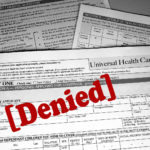[su_box title=”Here’s what you need to know…” style=”default”]
- Allergic symptoms can develop at anytime throughout your lifetime
- Severe allergies are often treated with a series of injections
- Typical allergic symptoms include a runny, nose, watery eyes, and sneezing
[/su_box]
Many insurance providers have agreements with companies offering allergy relief. To be sure, it is best to check with your insurance company to see if your plan covers allergy treatments.
Some health insurance companies may pay to treat the symptoms of the allergy, but not the cause. In fact, you are probably quite lucky if your insurance company is one of those few who have who do cover allergy treatments.
People with a Health Savings Account may also be entitled for a reimbursement of your expenses. However, similar to Lasik Eye Surgery and some dental procedures, assessment and therapy for allergies is considered an elective procedure.
In addition, you may require allergy shots to relieve your allergy symptoms.
However, the coverage for allergy shots differs from one insurance company to another. It is advisable that you contact your health insurance company to confirm if shots are included under your plan.
For the treatment of nasal allergy symptoms related to seasonal allergic rhinitis, there are insurance companies, which cover this depending on the severity of the allergy.
Enter your zip code above and start comparing health insurance quotes in your area!
Why do most insurance companies not cover allergy relief treatments?
Most insurance companies do not cover allergy relief treatments because some of the standard medications for allergies such as Claritin are already available over the counter.
The insurance companies claim that as long as an effective medicine for allergies is available over the counter, there is no need to cover it under your insurance.
Hence, the cost was transferred from the insurance companies to the patients. However, some allergy shots are still covered by insurance companies.
What is an allergy?
When your body reacts inappropriately to a harmless substance such as food, dust, mold, or seasonal irritants such as pollen and you experience allergic reactions such as itchy eyes, trouble in breathing, red spots on skin and scratchy throat, you have an allergy.
The allergic reactions that you suffer such as runny nose, skin rash, shortness of breath, sinus problems, and itchy eyes are caused by allergens.
These allergens are harmless substances in the environment and they could include anything. The usual list of allergens includes:
- House dust mites
- Mold
- Cats
- Dogs
- Insects like bees
- Household chemicals
- Medicines
- Pollen from trees and grasses
- Foods such as eggs and milk
Nuts, latex, and fruits may also cause allergies. Penicillin is also a common allergy to some.
What are the usual treatments to allergies?

These medications are readily available over the counter and by prescription. Decongestants, combination drugs, antihistamines, and corticosteroids are just some of the allergy medications available in the market.
Another way to avoid allergic symptoms is avoiding the allergen, however, this is easier said than done. Change of seasons and activities of daily living expose us to common allergens.
In addition, you may start suffering from allergy symptoms without even knowing what you are allergic to!
How do the medications for allergies work?
Medications do not cure allergies, but they can ease their annoying symptoms such as itchy eyes, sneezing, and runny nose. Antihistamines block the chemical histamine that the body releases when it thinks that it is being attacked by an allergen.
Antihistamines are available in cream, liquid form, tablet, eye drops and nasal sprays.
Nasal sprays minimize irritation and swelling of the nose; while eye drops, help ease soreness of the itchy eyes. Take note that these medications are for adult use only and are not suitable for children.
Decongestants may relieve a stuffy nose caused by hay fever. They are also effective for dust allergies and pet allergies. Decongestants are available in the form of capsules, liquids, nasal sprays and tablets.
Leukotriene tablets block the effects of leukotriene chemicals produced by the body that causes swelling of the airways. It is also effective in treating asthma.
Immunotherapy relieves the symptoms by slowing introducing the allergen into the body so it will be immune to it. It is usually administered through injections under the skin of the upper arm.
However, this treatment is only recommended for severe allergies such as pet allergies and hay fever that have not responded to other treatments.
Combination allergy drugs containing both a decongestant and antihistamine and are effective in relieving multiple allergy symptoms.
How much does allergy treatment cost?
The cost for allergy treatment injections start from $25 to $100 each. Since this treatment should be repeated 25 times or more, it is expected that less people could afford it if insurance companies will not pick up the bill.
However, these costs have dropped and are now between $290 and $170. For treating allergic rhinitis for the entire year, the cost would be around $1,200. When waging war on allergy season, having health insurance is a must!
Check out health insurance quotes with our easy-to-use comparison tool!
[su_spoiler title=”References:” icon=”caret-square” style=”fancy” open=”yes”]
- http://www.webmd.com/allergies/guide/allergies-treatment-care
- https://medlineplus.gov/ency/article/000005.htm
- http://www.allergy.org.au/patients/allergy-treatment/immunotherapy
- http://acaai.org/allergies/treatment/allergy-testing/skin-tes
[/su_spoiler]




